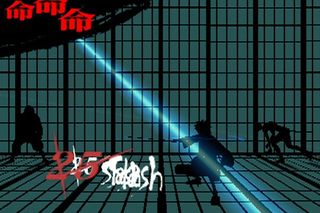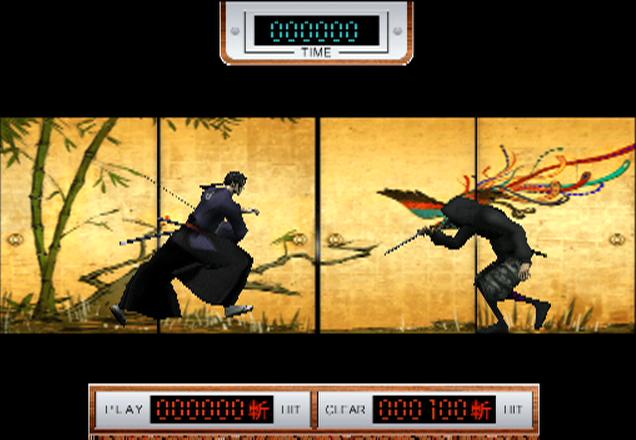Why you can trust 12DOVE
Granted, there are a few novel touches. Yes, it's pretty cool that you can "equip" two different background-music tracks, and that those tracks open up new sword combos and abilitiesas you switch between them on the fly. It's also worth pointing out that there are different tiers of fun here; Jin, with his strong, measured sword strikes and inability to jump, is easily the most boring character, while Mugen's breakdance moves make him far more interesting to watch. But the most enjoyable one is Worso, an acrobatic Ainu warrior whose plotline can be unlocked by finishing either of the two main ones (assuming you have the patience to do that, anyway).

And yeah, "Tate" mode - which briefly interrupts combat so you can mash buttons and cut a single enemy with up to 100 lightning-quick slashes - looks really cool. And "Trance" mode - a silhouetted fight in front of a shoji screen against 100 weak enemies, which you enter if you score 100 slashes in Tate - is almost as mesmerizing the 20th time as it is the first.
But it's not as fun the 20th time, and that's the problem. As soon as the hip novelty and awesome visuals wear off, you begin to realize there's not much more to Sidetracked than the same five minutes of gameplay, over and over again. Even Tate and Trance modes eventually become time-consuming pains in the ass, no matter how many cool secret items they unlock.
More info
| Genre | Action |
| Description | A violent, hyperstylized, hip-hop romp through 19th-century Japan that introduces some cool new ideas but gets old fast. |
| Platform | "PS2" |
| US censor rating | "Teen" |
| UK censor rating | "" |
| Release date | 1 January 1970 (US), 1 January 1970 (UK) |

Elden Ring Nightreign is saying goodbye to FromSoftware's beloved messaging system

Tetris some towns together in this cute city builder brought back to life by Kickstarter after the studio "had to let everyone go" last year

Balatro creator shares the GOTY love with other indie games while giving out a "very prestigious Golden Thunk award"
